“My administration has been working hard to save TikTok and we have made tremendous progress,” Trump said in a post on Truth Social. “However, the deal still needs more time to ensure all necessary approvals are in place.”
This is the second time President Trump has used executive power to delay the implementation of the law signed by President Joe Biden in April 2024, which requires ByteDance to sell TikTok within 270 days on national security grounds. The original deadline was January 19, 2025, but Mr. Trump, after taking office for a second term on January 20, postponed the implementation of the law to continue negotiations.
According to US media, a deal was preliminarily finalized on April 2, under which TikTok US will be separated into a new US-based company, with the majority of shares held by US investors and ByteDance retaining less than 20% of the shares.
The plan has received approval from ByteDance, its investors and the US government. This arrangement is expected to ease concerns about China controlling US user data, as TikTok currently has up to 170 million users in this country.
However, a major turning point occurred on April 2 when President Trump announced that he would impose a 10% base tariff on all imported goods from April 5 and then reciprocal tariffs on countries with large trade deficits with the US from April 9, of which China would be subject to a 34% tariff. In response, the Chinese government announced that it would also impose a 34% reciprocal tariff on all goods imported from the US to China from April 10.
The development also prompted China to rethink the TikTok deal, according to people familiar with the matter. A source said ByteDance contacted the White House shortly afterward, saying China would not approve the deal without separate negotiations on trade and tariffs.
ByteDance confirmed that it is “in discussions with the US government on a potential solution for TikTok,” but that no deal has been signed and that “many key issues remain to be resolved.” ByteDance also made it clear that any deal would require approval under Chinese law — a sticking point that could be difficult to resolve amid escalating trade tensions.
Meanwhile, the Chinese Embassy in the US stated: “China always respects and protects the legitimate rights and interests of enterprises and opposes acts that violate market economy principles.”
Vice President JD Vance and his team have reportedly been in direct talks with potential investors for months, laying the groundwork for a deal to save TikTok. But now the deal’s future is more uncertain than ever.
Data security concerns remain at the heart of the current debate. “If the algorithm remains in the hands of ByteDance, all the root risks remain,” warned Chris Pierson, CEO of security platform BlackCloak. “Control of the data and the algorithm is the core of the problem.”
Meanwhile, according to the latest survey by the Pew Research Center, only about a third of Americans surveyed support a TikTok ban, down significantly from the 50% support rate in the 2023 survey. Meanwhile, the rest are evenly divided between opposing the ban and having no clear opinion.
Source: https://nhandan.vn/tuong-lai-bat-dinh-cua-tiktok-tai-my-trong-vong-xoa-thue-quan-post870335.html



![[Photo] Panorama of the Opening Ceremony of the 43rd Nhan Dan Newspaper National Table Tennis Championship](https://vphoto.vietnam.vn/thumb/1200x675/vietnam/resource/IMAGE/2025/5/19/5e22950340b941309280448198bcf1d9)
![[Photo] Close-up of Tang Long Bridge, Thu Duc City after repairing rutting](https://vphoto.vietnam.vn/thumb/1200x675/vietnam/resource/IMAGE/2025/5/19/086736d9d11f43198f5bd8d78df9bd41)
![[Photo] General Secretary To Lam attends the conference to review 10 years of implementing Directive No. 05 of the Politburo and evaluate the results of implementing Regulation No. 09 of the Central Public Security Party Committee.](https://vphoto.vietnam.vn/thumb/1200x675/vietnam/resource/IMAGE/2025/5/19/2f44458c655a4403acd7929dbbfa5039)

![[Photo] President Luong Cuong presents the 40-year Party membership badge to Chief of the Office of the President Le Khanh Hai](https://vphoto.vietnam.vn/thumb/1200x675/vietnam/resource/IMAGE/2025/5/19/a22bc55dd7bf4a2ab7e3958d32282c15)


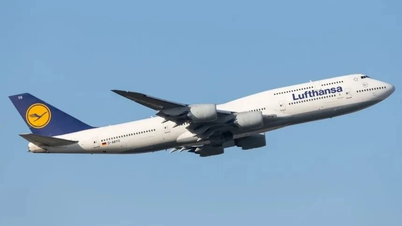



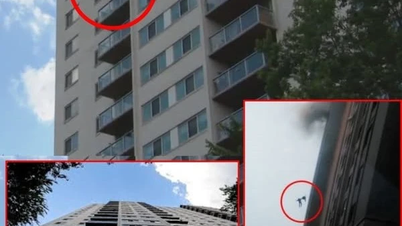




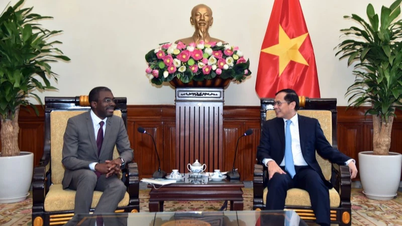


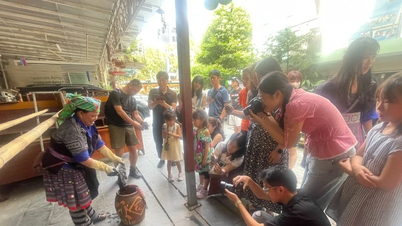

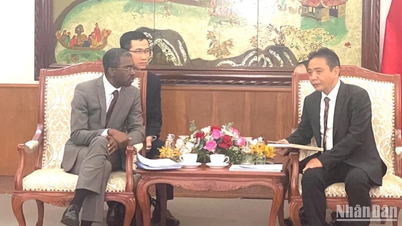
![[Photo] Prime Minister Pham Minh Chinh inspects the progress of the National Exhibition and Fair Center project](https://vphoto.vietnam.vn/thumb/1200x675/vietnam/resource/IMAGE/2025/5/19/35189ac8807140d897ad2b7d2583fbae)





















































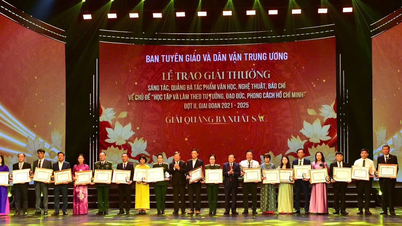







![[VIDEO] - Enhancing the value of Quang Nam OCOP products through trade connections](https://vphoto.vietnam.vn/thumb/402x226/vietnam/resource/IMAGE/2025/5/17/5be5b5fff1f14914986fad159097a677)



Comment (0)